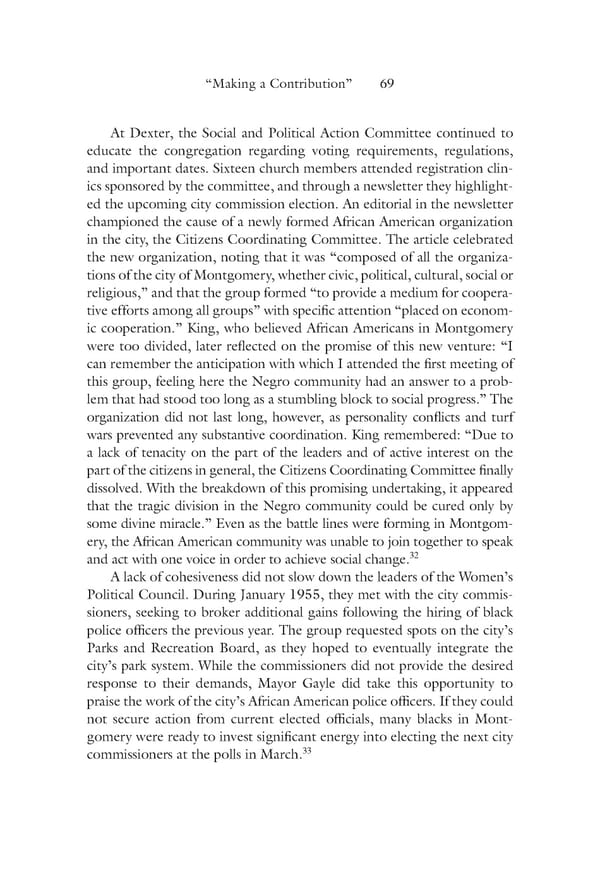“Making a Contribution” 69 At Dexter, the Social and Political Action Committee continued to educate the congregation regarding voting requirements, regulations, and important dates. Sixteen church members attended registration clin- ics sponsored by the committee, and through a newsletter they highlight- ed the upcoming city commission election. An editorial in the newsletter championed the cause of a newly formed African American organization in the city, the Citizens Coordinating Committee. The article celebrated the new organization, noting that it was “composed of all the organiza- tions of the city of Montgomery, whether civic, political, cultural, social or religious,” and that the group formed “to provide a medium for coopera- tive efforts among all groups” with specific attention “placed on econom- ic cooperation.” King, who believed African Americans in Montgomery were too divided, later reflected on the promise of this new venture: “I can remember the anticipation with which I attended the first meeting of this group, feeling here the Negro community had an answer to a prob- lem that had stood too long as a stumbling block to social progress.” The organization did not last long, however, as personality conflicts and turf wars prevented any substantive coordination. King remembered: “Due to a lack of tenacity on the part of the leaders and of active interest on the part of the citizens in general, the Citizens Coordinating Committee finally dissolved. With the breakdown of this promising undertaking, it appeared that the tragic division in the Negro community could be cured only by some divine miracle.” Even as the battle lines were forming in Montgom- ery, the African American community was unable to join together to speak 32 and act with one voice in order to achieve social change. A lack of cohesiveness did not slow down the leaders of the Women’s Political Council. During January 1955, they met with the city commis- sioners, seeking to broker additional gains following the hiring of black police officers the previous year. The group requested spots on the city’s Parks and Recreation Board, as they hoped to eventually integrate the city’s park system. While the commissioners did not provide the desired response to their demands, Mayor Gayle did take this opportunity to praise the work of the city’s African American police officers. If they could not secure action from current elected officials, many blacks in Mont- gomery were ready to invest significant energy into electing the next city 33 commissioners at the polls in March.
 Becoming King: Martin Luther King Jr. Page 89 Page 91
Becoming King: Martin Luther King Jr. Page 89 Page 91